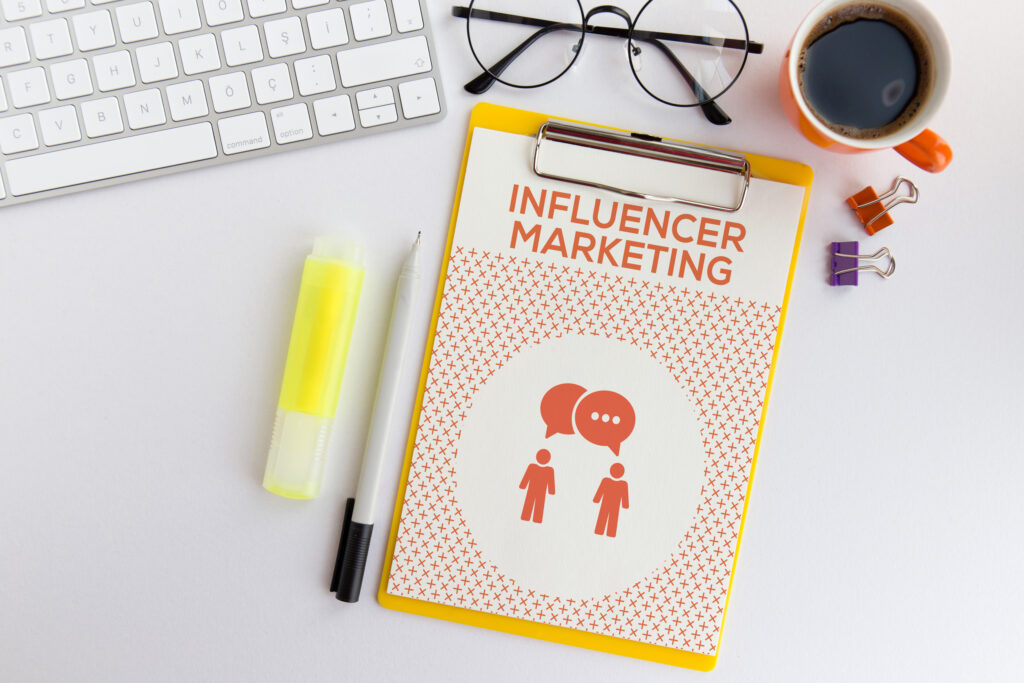
The term “influencer” is generally associated with social media personalities and celebrities promoting consumer brands. While some may view over-commercialized influencers with skepticism, the fact is that influencers are hardly a new marketing approach. Public figures and everyday people have shaped behavior for centuries. Advanced audience accessibility through digital mediums has simply opened the door for increased visibility.
B2B organizations are embracing influencer collaborations to expand reach and build trust with clients. To be successful, these partnerships require a strategic approach. Consumer brand influencer campaigns often rely on viral trends that can disappear as quickly as they begin. On the other hand, B2B influencer alliances focus on professional relevance, niche proficiency, and subject matter experts. Influencers in the B2B space are the trusted voices buyers turn to for guidance throughout complex sales cycles.
When executed strategically, influencer partnerships can deliver tangible results:
- Brand awareness. Collaborations can extend an organization’s reach into new audience segments.
- Thought leadership. Respected industry authorities position brands and key team members as thought leaders.
- Lead generation. Influencer-led webinars, white papers, podcasts, and events can drive high-quality leads.
- Relationship building. Industry influencers help foster long-term credibility within professional communities.
- Return on investment. B2B influencer marketing is cost-effective. A study by InfluencerHub found that B2B companies that invest in influencer marketing see a $5.20 return for every dollar spent.
Influencer Collaboration Opportunities
When considering partners, seek out B2B influencers who already possess credibility with target audiences. Subject matter experts (SMEs) like technologists, researchers, consultants, and industry analysts provide integrity and authority through evaluations and recommendations.
Podcast and webinar hosts, panelists, and moderators often shape industry discussions, along with engineers, product managers, or operational leaders who create thought leadership content. To reach tech innovators, Dell asked former CNN CEO and author of the 2011 Steve Jobs biography, Walter Isaacson, to host a podcast. While larger organizations may have access to big names, many companies find that micro- and mid-tier influencers drive stronger engagement. This is because B2B buyers perceive those who are in the trenches as more authentic and approachable within professional communities.
Best Practices
To maximize impact and maintain authenticity, successful companies focus on best practices, such as:
-
Identify potential partners.
Seek out thought leaders within the industry on social media, in industry publications, and at tradeshows and conferences. LinkedIn is also excellent for prospecting B2B influencers. Narrow down the list by focusing on individuals whose content and influence are relevant to your target audiences.
-
Engage in meaningful conversations.
Nurture the relationship by liking, commenting on, and sharing posts. Influencers who respond to comments and interact with followers are committed to building a strong community within their sector. After creating a shortlist of potential partners, explore opportunities for collaboration.
-
Establish clear objectives.
When partnering with influencers, establish goals and expectations upfront. Common objectives include driving brand awareness, increasing user-generated content, generating leads, supporting sales efforts, encouraging positive reviews, and boosting social proof. Clearly define parameters for the relationship, including frequency of posting and styles of content. Avoid misunderstandings by confirming alignment in tone, ethics, and audience relevance before proceeding. Crafting clear partnership agreements and following FTC guidelines ensures necessary disclosures and compliance are secured.
-
Prioritize building relationships.
Focus on long-term relationships and value creation rather than one-off campaigns to instill company trust.
-
Nurture collaboration and freedom.
It’s important to engage influencers from ideation on to ensure brand alignment. At the same time, allow creators flexibility to maintain their voice and authenticity.
-
Evaluate continuously.
Influencer marketing is no different from any other campaign, so tracking results, gathering feedback, and refining as needed are critical.
Hubspot has extensive success with influencer collaborations, obtaining over half of its YouTube demand from these partnerships. “Brands that partner with a select few creators in their niche create demand and drive sales through channels like YouTube, Newsletters, Podcasts, and social,” says Kyle Denhoff, HubSpot director of marketing on the media team. “Our audiences want to learn from credible experts over institutional brands. This mix of owned and creator media is helping propel our business forward.”
Choosing the Right Medium
Impactful content is essential to influencer initiative success. It’s vital to align the type and format of the content to the various stages of the B2B buyer journey.
In the awareness stage, co-branded webinars and co-authored articles and white papers allow for deep dives on industry trends and showcase influencer expertise. Case studies and customer success stories provide the social proof that B2B buyers seek. Real-world evidence of positive results helps build trust and credibility. Social media campaigns, podcast interviews, and LinkedIn Live sessions can target specific industries and niches. Guest blog posts offer diverse perspectives from industry experts. When brands and influencers cross-share content, it establishes a collaborative image with both sets of audiences.
During the consideration stage, leverage influencers to communicate benefits and address questions and common concerns. Demonstrations, tutorials, and walkthroughs by influencers with specific expertise can demonstrate the value of a product or service in a non-salesy manner.
Once B2B buyers enter the decision state, influencer-led offers, discounts, or first-person testimonials can create a sense of urgency that leads to a purchase.
Influence Drives Success

Influence drives trust in today’s digital marketplace and trust drives business. Long-term trust is foundational for B2B marketing. Organizations that develop strategic partnerships with brand-aligned, credible influencers extend their competitive market edge. Consumers are increasingly bombarded with information, making visibility vital for lasting growth and success. The right organization-influencer partnership can make the difference between being noticed and being overlooked.

